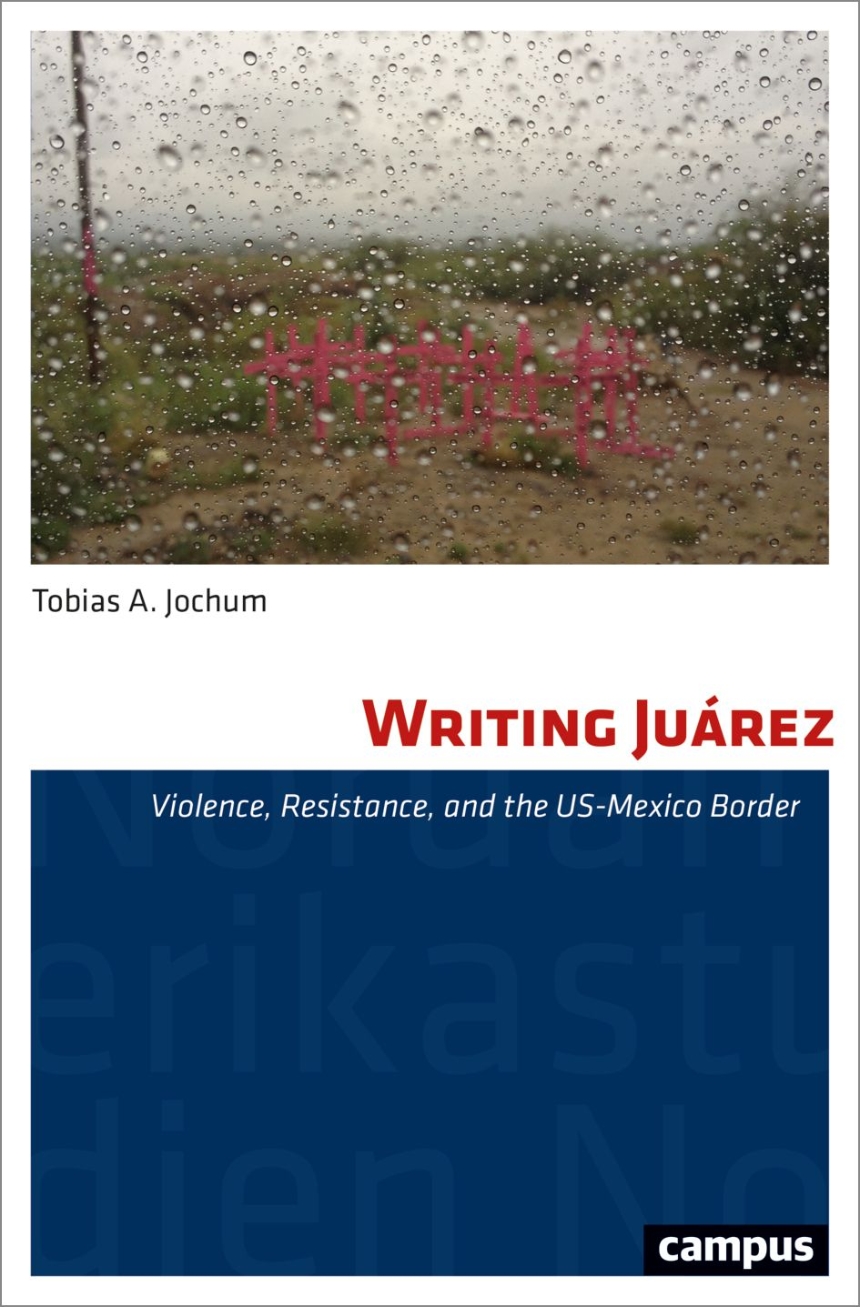A rigorous reflection on recent literary accounts of violence at the US-Mexico border.
Writing Juárez is a rigorous reflection on recent literary accounts of violence at the US-Mexico border. The book foregrounds questions of political resistance and representational ethics. Adopting a truly hemispheric approach, the study brings together Mexican anthropologies of violence, critical geography, political theory, continental philosophy, and postcolonial media and affect theory to examine literature from both sides of the border. Jochum's survey of the border town's transnational imaginary hones in on three seminal books, each emblematic for a particular model, author position, and historical inflection point. Against a long trajectory casting Ciudad Juárez as an overdetermined space of abjection, Tobias A. Jochum shows how a proliferation of creative, critical, and civic responses to the brutal effects of neoliberalism and militarization since the 1990s has generated new epistemologies and conceptual vocabularies that speak to a larger crisis of Modernity far beyond the confines of the neoliberal borderlands.
Writing Juárez is a rigorous reflection on recent literary accounts of violence at the US-Mexico border. The book foregrounds questions of political resistance and representational ethics. Adopting a truly hemispheric approach, the study brings together Mexican anthropologies of violence, critical geography, political theory, continental philosophy, and postcolonial media and affect theory to examine literature from both sides of the border. Jochum's survey of the border town's transnational imaginary hones in on three seminal books, each emblematic for a particular model, author position, and historical inflection point. Against a long trajectory casting Ciudad Juárez as an overdetermined space of abjection, Tobias A. Jochum shows how a proliferation of creative, critical, and civic responses to the brutal effects of neoliberalism and militarization since the 1990s has generated new epistemologies and conceptual vocabularies that speak to a larger crisis of Modernity far beyond the confines of the neoliberal borderlands.
420 pages | 12 color plates | 5 1/2 x 8 1/2 | © 2022
History: American History, Latin American History
Language and Linguistics: General Language and Linguistics
Table of Contents
Abstracts v
Acknowledgements vii
Introduction 1
The Juárez Femicides: Approximation of a Transnational Imaginary 17
I Scenes and Machines
Texts, Contexts, and the Dialectics of Proximity and Distance
(1) Three Preliminary Scenes of Violence and Spectatorship 44
(2) The Femicidal Scene in a Contemporary Panorama of Atrocity 53
(3) Mexican Misery: Confronting Medusa, Theorizing Machines 73
II The Journalistic Angle (Narrative and Illustration)
Border Violence as Spectacle in Photo/Graphic Non-Fiction 108
III The View from the Distance (Novelization and Genre)
Savage Modernity in Roberto Bolaño’s 2666
(1) "Our Curse and Our Mirror" 154
(2) Death Displays and Disposable Detectives 188
(3) The Monsters of Demodernization 223
IV The Local Literary Imagination (Can the Dystopian Speak?)
Narrative Responses to Militarization in Recent Juarense Fiction 250
(1) Stuck at the Wheel: Ricardo Vigueras’ A vuelta de ruedas tras la muerte 254
(2) Staging Stasis in Diego Ordaz’ Los días y el polvo (Bartleby Prelude) 265
(3) Border Bartleby: Itinerant Memory and the Politics of Indeterminacy 269
in Willivaldo Delgadillo’s Garabato
Works Cited 326
Appendix 350
Acknowledgements vii
Introduction 1
The Juárez Femicides: Approximation of a Transnational Imaginary 17
I Scenes and Machines
Texts, Contexts, and the Dialectics of Proximity and Distance
(1) Three Preliminary Scenes of Violence and Spectatorship 44
(2) The Femicidal Scene in a Contemporary Panorama of Atrocity 53
(3) Mexican Misery: Confronting Medusa, Theorizing Machines 73
II The Journalistic Angle (Narrative and Illustration)
Border Violence as Spectacle in Photo/Graphic Non-Fiction 108
III The View from the Distance (Novelization and Genre)
Savage Modernity in Roberto Bolaño’s 2666
(1) "Our Curse and Our Mirror" 154
(2) Death Displays and Disposable Detectives 188
(3) The Monsters of Demodernization 223
IV The Local Literary Imagination (Can the Dystopian Speak?)
Narrative Responses to Militarization in Recent Juarense Fiction 250
(1) Stuck at the Wheel: Ricardo Vigueras’ A vuelta de ruedas tras la muerte 254
(2) Staging Stasis in Diego Ordaz’ Los días y el polvo (Bartleby Prelude) 265
(3) Border Bartleby: Itinerant Memory and the Politics of Indeterminacy 269
in Willivaldo Delgadillo’s Garabato
Works Cited 326
Appendix 350

